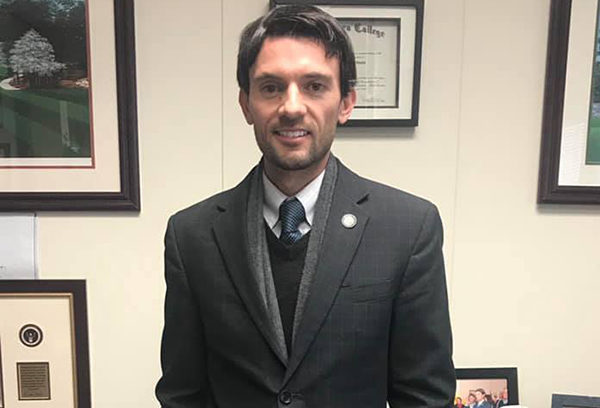The North Carolina Legislature adjourned on Oct. 31 without overriding Gov. Roy Cooper’s veto of the state budget, which means the state has no 2019-2021 budget.
President Pro Tem Senator Phil Berger in a press release stated that by passing mini-budget bills the legislature had passed 98.5 percent of the budget. The legislature left town after passing a bill to give teachers an average of a 3.9 percent raise, but so far Cooper hasn’t signed it or vetoed it.
The 98.5 percent of the budget being passed in mini-budget bills sounds good unless you really needed a project funded that is in the portion that didn’t get passed.
According to state Rep. Jon Hardister, who is the House whip, the legislature didn’t pass the portion of the budget that grants funds to local governments, schools and universities.
On Oct. 10, Guilford County held the groundbreaking for the new mental health center it is building in conjunction with Sandhills Center and Cone Health. The state had agreed to fund that project to the tune of $10 million and that has not been passed.
Also NC A&T State University had $26 million and UNCG $84 million for infrastructure in the budget, and with no budget those items remain unfunded.
Hardister noted that grants like $100,000 for the North Carolina Folk Festival were also in the budget and had not been passed.
He said that the Children’s Home Society with headquarters in Greensboro had a $2.5 million grant in the budget, which would be used for a federal match and that had not been funded.
Hardister said, “We’re still hoping for an override, but if we don’t get it we will continue with the mini-budget process.”
He said, “It’s certainly problematic not to have a budget. I’m shocked and disappointed by it.”
The problem with either a veto override or the mini-budget process is that the next time the legislature can consider most of the funding issues is Jan. 14.
Hardister said that the previous budget rolls over and “reoccurring funds will reoccur but with no increase in funding.” He said that was a problem for schools that had increased enrollment and other state departments that received increased funding in the budget.


Everyone who wants to complain can call Gov. Veto’s office and complain to him…